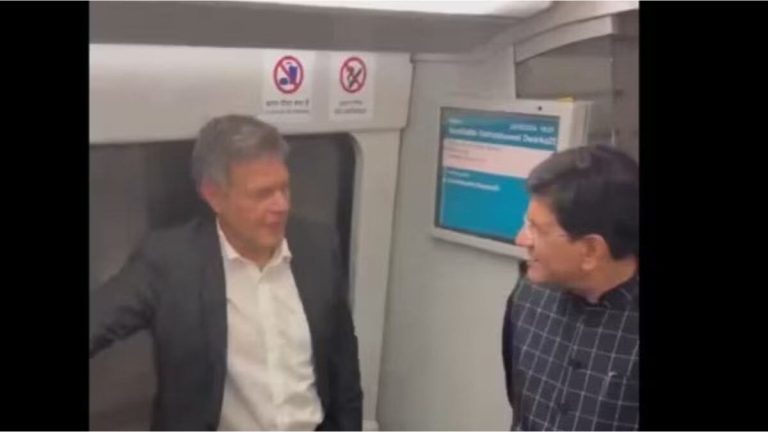Herrenknecht, a German mechanized tunnel boring machine company, has reportedly cited “extraordinary circumstances” with Chinese customs, delaying deliveries of tunnel boring machines destined for Indian projects.
According to the company, this issue has seriously affected its ability to meet its obligations to its Indian customers.
“For several months, we have observed extraordinary circumstances in the customs clearance processes for machines delivered from China to India. This prevents us from fulfilling our delivery obligations as planned and, in some cases, completely,” a Herrenknecht spokesperson was quoted as saying in an Indian Express report.
The situation came to public attention when Union Commerce Minister Piyush Goyal spoke directly about it with German Vice-Chancellor and Federal Economy Minister Robert Habeck.
The exchange took place during a ride on the Delhi Metro, as part of Habeck’s visit to India for the 7th India-Germany Intergovernmental Consultations. Goyal expressed his frustration, pointing out that tunnel boring machines manufactured by Herrenknecht in China were being blocked from being exported to India.
“We should stop buying German equipment now,” Goyal remarked, emphasizing the urgency of the situation.
Habeck, who initially seemed unfamiliar with the details, asked, « They produce in China? » Goyal agreed, highlighting the impact on crucial infrastructure projects. In response, Habeck rose from his seat and admitted, “I think I should listen to you.” »
Herrenknecht, which operates worldwide from over 60 locations, remains a key player in tunneling projects in India. Through its Chennai-based subsidiary, the company has supplied tunnel boring machines for the metro networks of Delhi, Mumbai, Chennai and other major cities. The company declined to specify the number of tunnel boring machines affected or the projects involved, citing confidentiality agreements.
Additionally, Herrenknecht noted that its central production facility in Schwanau, Germany, remains crucial for manufacturing key components, even as large steel structures are manufactured and assembled at its facilities in China and India.
“This allows our customers to check the functionality of the machines in their entirety in one place and to rely on consistently high quality standards,” the company explained.
The video of the exchange between Goyal and Habeck, which has since gone viral, highlights the pressure these delays are putting on India’s infrastructure ambitions. This current issue highlights the challenges faced in international manufacturing and supply chain logistics, particularly in sectors critical to urban development and civil infrastructure.



